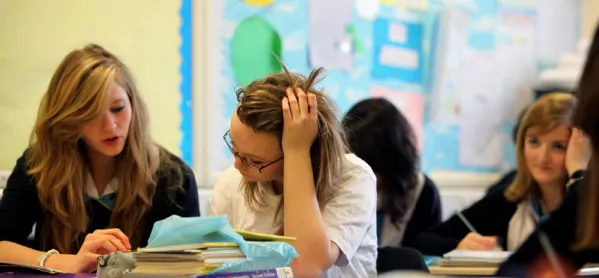Surveying children and then publishing the results as solid facts has become a recurrent feature of our media landscape. Advocacy groups and campaigning organisers publish surveys that supposedly demonstrate that “children say” that they worry about the environment or are not happy with the world or want more sex education or feel stressed-out and depressed.
It seems that the bigger the survey, the more solid the facts that have been discovered by the researchers. The Children Society’s The Good Childhood Report from last August is paradigmatic in this respect. Its “discovery” that English children are “amongst the unhappiest in the world due to bullying”, which relied on the unreliable method of self-reporting, was treated by the media as an incontrovertible truth. The use of survey techniques - especially online ones - to capture the wellbeing of children is especially inappropriate for grasping the internal life of young people. It is evident that this survey said more about the concerns of its authors than about how children felt about their life.
Most of the media-orientated surveys of children are relatively harmless examples of using market research to sell a product, an idea or a cause. However, I believe that the problem with surveys of children is not only that they say very little beyond the obvious, but also that they are used as indirect prompts for influencing schoolchildren. Surveys do not simply ask questions, they also direct responders towards a particular train of thought. In some instances they work as a tool of propaganda.
For example, last year it was reported that in one primary school Muslim children were given a questionnaire to assess their disposition towards becoming radicalised. Within the questionnaire they were asked to indicate whether they agreed, disagreed or were unsure about the statement: “I believe my religion is the only correct one.” The aim of such a question is twofold. First to discover which primary school child was at risk of radicalisation, and secondly, to prompt them to adopt a pluralistic attitude towards all religions. What this example indicates is that surveys are not simply about the discovery of facts - they serve as instruments for the realisation of a variety of other purposes.
‘Social engineering’
The utilisation of surveys as a tool of social engineering is the main purpose of the recently announced Organisation for Economic Cooperation and Development survey of school students’ understanding of global cultural issues. The survey of 15-year-olds, promoted by the Programme for International Student Assessment, aims to discover what children think about their teachers’ attitudes towards racial and cultural differences. They will be asked questions like whether they think their teachers are racists and say negative things about some cultural or ethnic groups.
The ostensible objective of this survey is to find out how students perceive their teachers’ attitudes. So children will be asked to give their opinion about whether or not their teachers “talk in a respectful way” and are “open to personal contact” with people from “all cultural or ethnic groups”. The way the questions are framed indicates that this is a case of sending out a message masquerading as a survey. The questions posed constitute a case of virtue signalling about what are considered as the correct values. There is, of course, nothing wrong with teaching children values - so long as it is done openly rather than in an indirect, roundabout way.
However, there is also a larger issue at stake. The questions that ask children to judge their teachers’ cultural attitudes and behaviour are likely to complicate relationships in the classroom. This is not some harmless exercise of market research. Asking children if their teachers are respectful and open to other cultures unleashes a dynamic where the normal tensions between a student and teacher will be interpreted in cultural terms.
A question asking children if their teacher is racist implies that some teachers are racists, which can encourage a climate of suspicion in the classroom. It also has the perverse effect of diminishing the moral status of teachers. Once children are encouraged to evaluate the motives of their teachers it is only a matter of time before respect for the profession becomes undermined. That is a big price to pay for Pisa’s project of using children to monitor and police their teachers’ attitudes and behaviour.
Frank Furedi is emeritus professor of sociology at the University of Kent
Want to keep up with the latest education news and opinion? Follow TES on Twitter and like TES on Facebook




